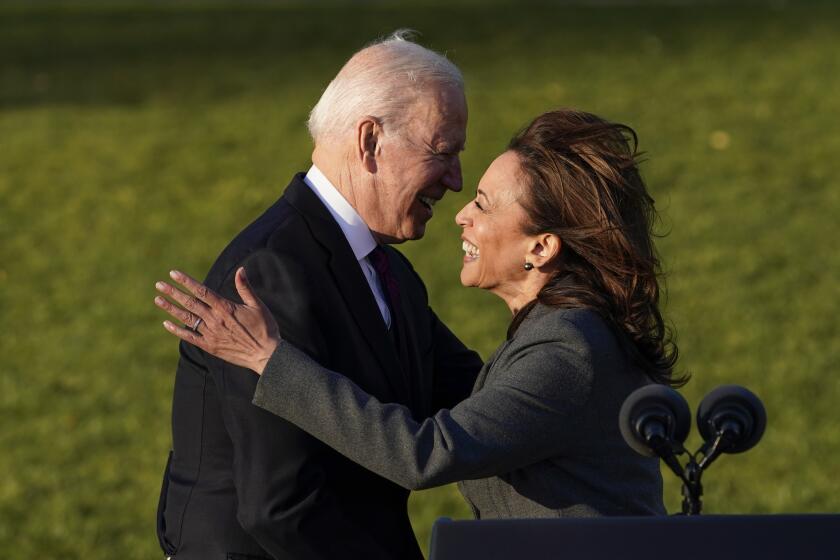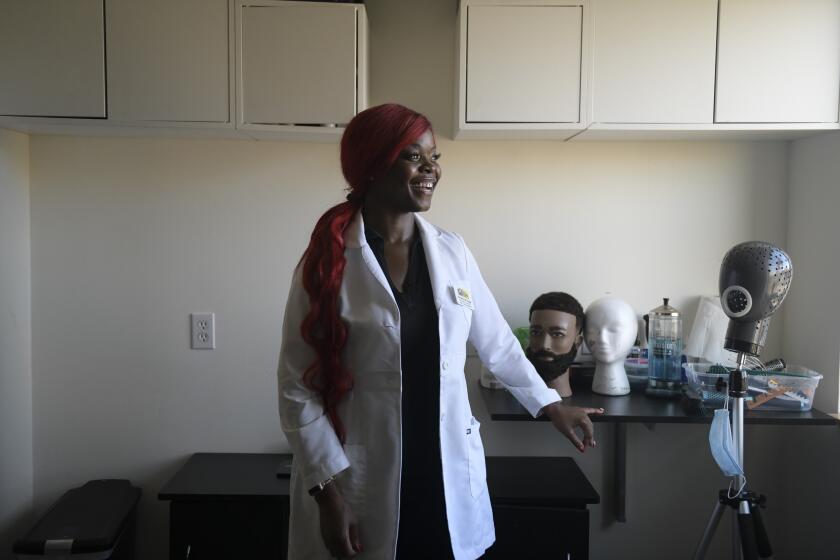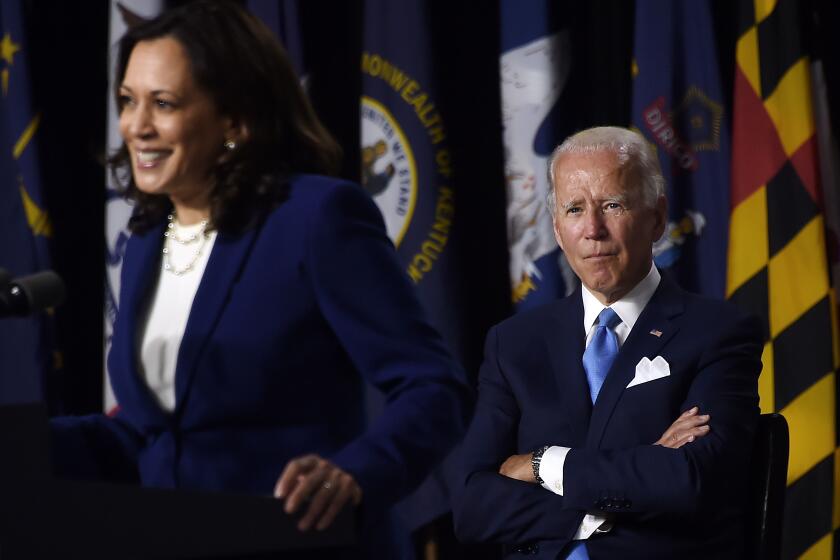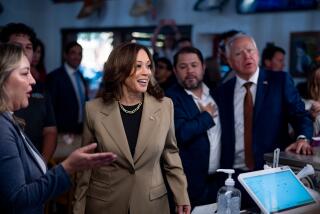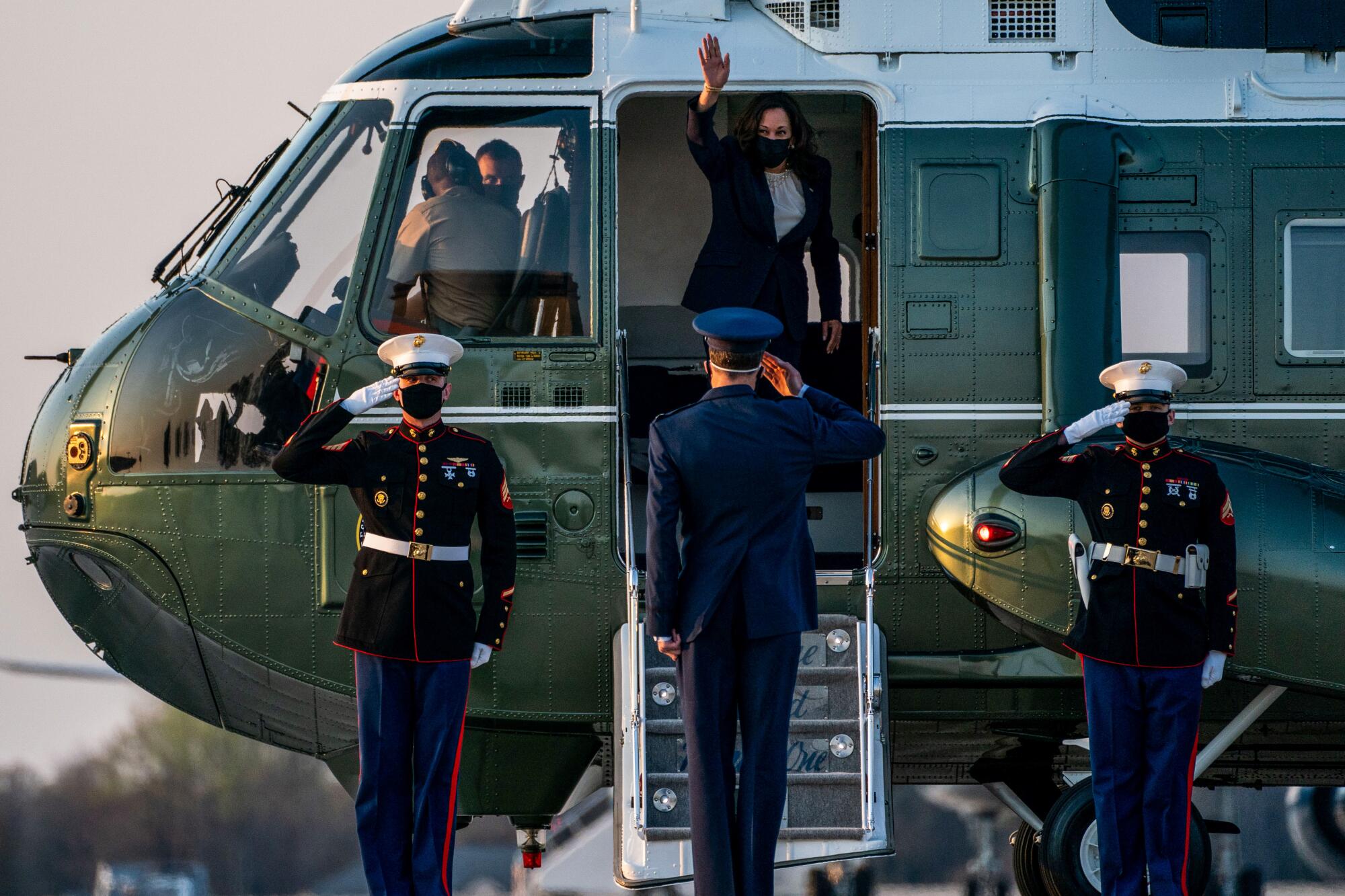
- Share via
WASHINGTON — Vice President Kamala Harris narrowed her eyes and changed the subject when asked at the end of her trip to Paris last month what she had learned that would prepare her for the presidency.
Though she is next in line to President Biden, who at 79 is the oldest person to ever hold the office, Harris has tried to quash any talk that she is aiming for the top job.
That show of deference — urged by advisors — has yet to pay off. Harris has struggled to tell her own story, leaving others to fill the void. Conservative media have attacked her while mainstream outlets have published a string of stories about low morale and high staff turnover in her office.
Like many vice presidents, Harris is learning how hard it is to define herself as a No. 2.
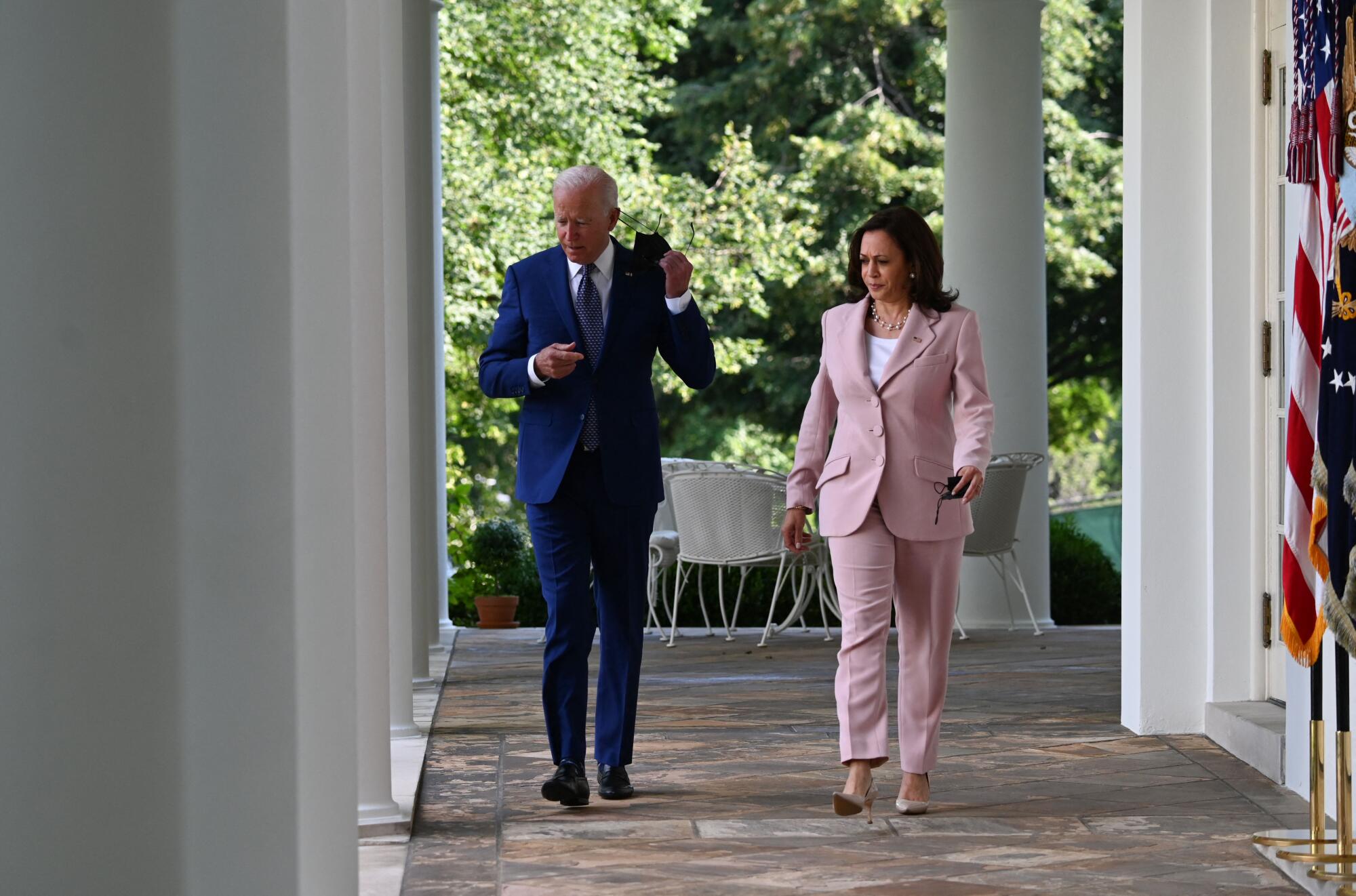
“I don’t know what the strategy is relative to her, but I wouldn’t say she’s had a lot of opportunities to really stand out,” David Axelrod, a former advisor to President Obama, said.
Kamala Harris’ former status as a prohibitive favorite as the party choice to succeed President Biden has taken a hit amid criticism of her as vice president. But denying her the job could create problems for Democrats with two key constituencies — Black and female voters.
The excitement among Harris’ supporters on the day she was sworn in as the first woman, the first Black American and the first person of South Asian descent to hold national office has given way to frustration over what some view as unfair treatment by the media, the political class and, to some extent, the public.
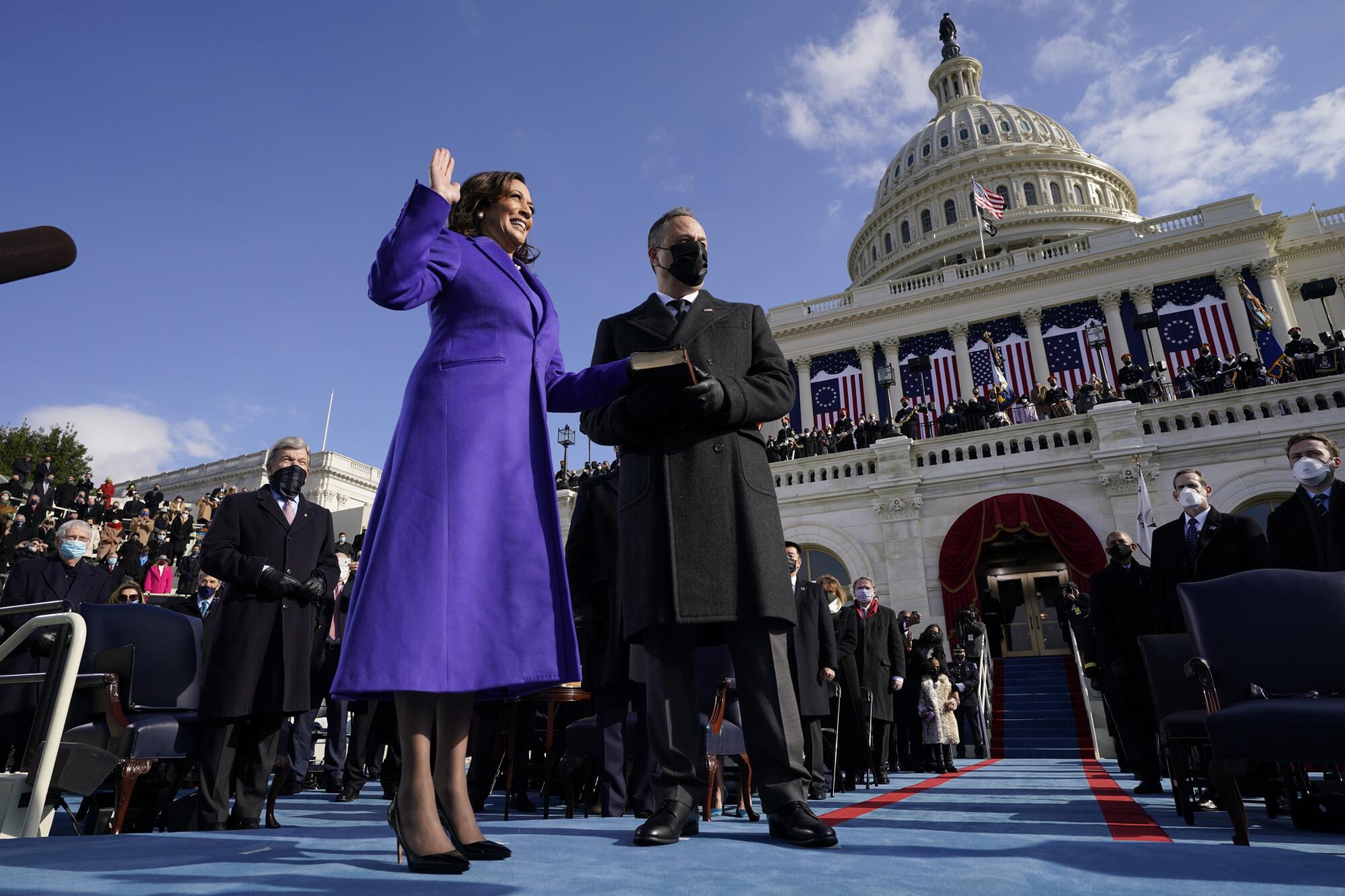
Indeed, in interviews this year, some voters expressed open hostility to the notion of a female president. And several studies have shown Harris and other women of color experience more vicious and frequent online harassment.
Harris has had little success in overcoming those obstacles.
Her two highest-profile assignments have been notably difficult: leading diplomatic efforts to curb migration from Central America and pushing back against laws in Republican-led states to curtail voting access.
The number of people stopped by immigration enforcement near the border hit record highs this year, and two Democratic voting rights bills are being held up in the Senate, where Democrats lack the 60 votes to overcome a Republican filibuster.
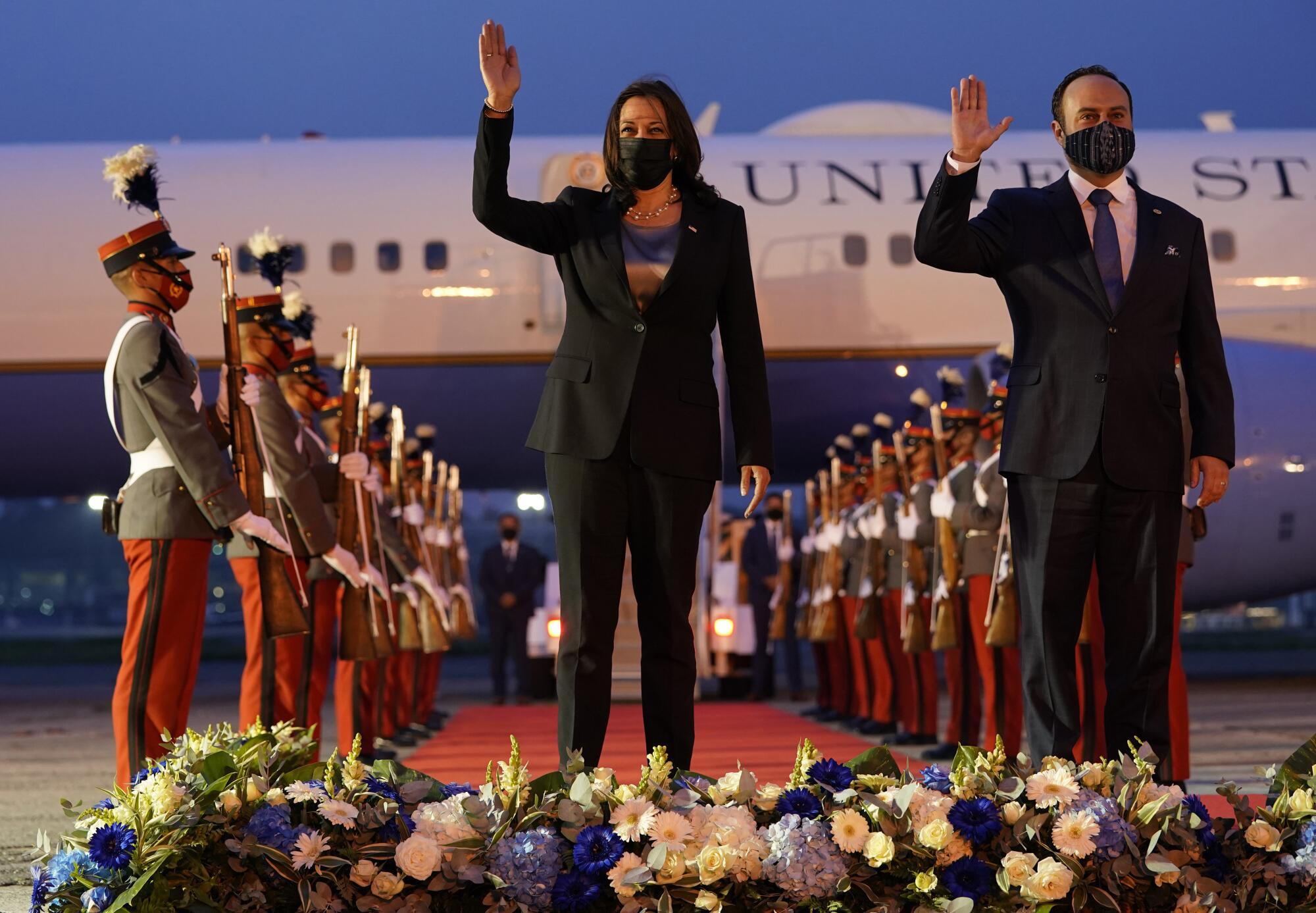
Harris has insisted neither matter can be fixed quickly and, in the case of Central America, will take months, or years, to address. The administration has begun a number of private and public efforts to spur business in Central America, even if efforts to curtail corruption have been stymied by governments that have ignored pleas to protect judges and anti-corruption prosecutors from retribution.
Harris has also been busy selling the Biden administration’s biggest policy initiatives — taking 35 domestic trips, holding a string of roundtables and speaking with local media outlets about a massive COVID-19 relief package, an infrastructure bill signed in November and a social safety net and environmental bill that is being negotiated in the Senate.
After Christine Paige met the vice president, her life changed in unexpected ways, showing how, in an era when the definition of celebrity is looser than ever, fame can be experienced in micro-doses.
“At the end of the day, vice presidents tend to amplify the president’s message,” Donna Brazile, a Harris confidant who led Al Gore’s 2000 presidential campaign, said recently.
Transportation Secretary Pete Buttigieg, on the road with her in North Carolina this month, gave Harris credit for ensuring the bipartisan infrastructure bill included funds for electric school buses, enhancing the safety of drinking water and addressing environmental justice — all were issues she worked on in the Senate. He said Harris urged lawmakers “not to get lost in the details of the politics but to remember the unique nature of the opportunity.”
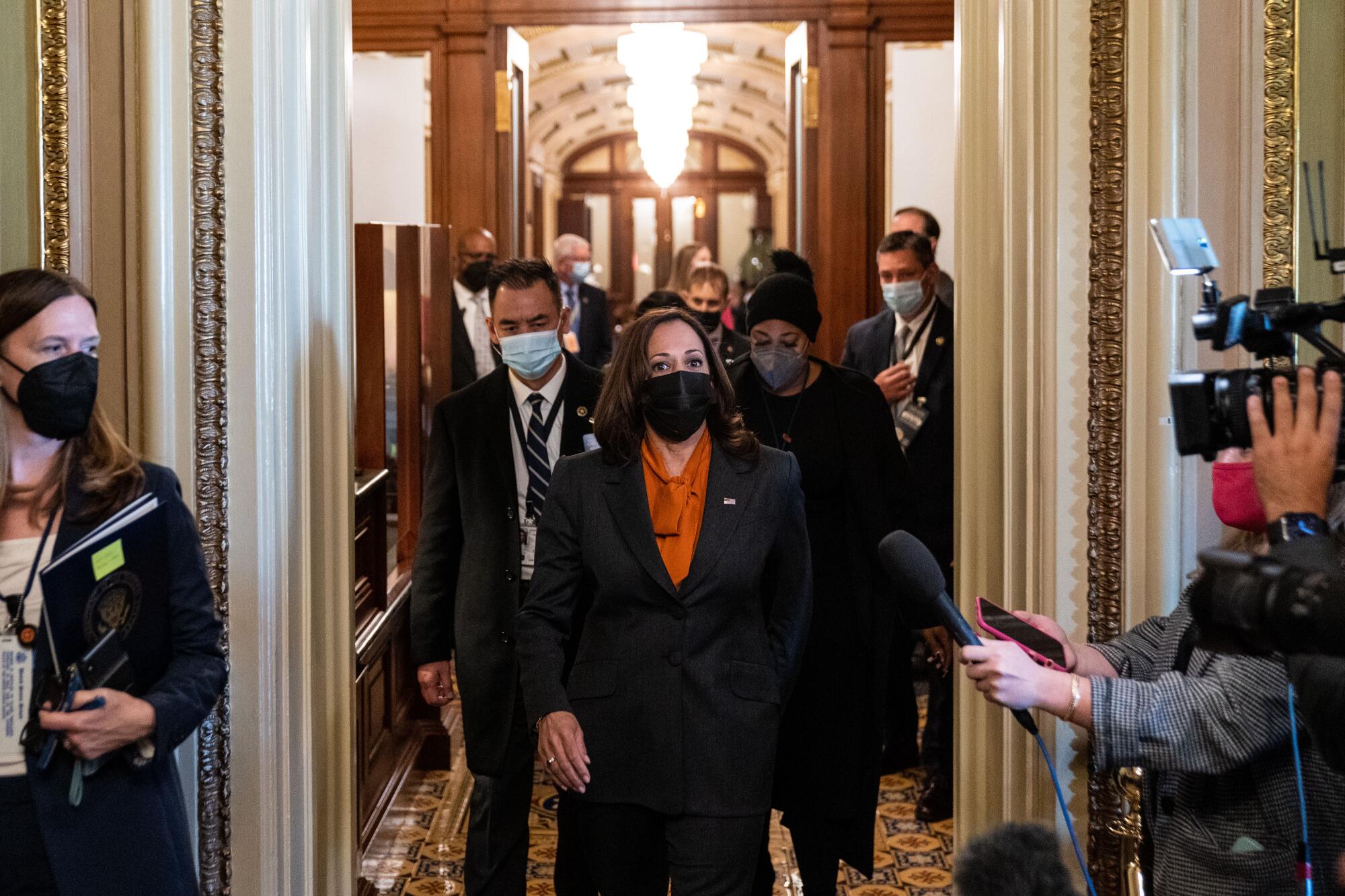
Harris helped Biden close the deal on the infrastructure law, helping to urge members of the Black Caucus to stay onboard during a particularly fraught moment. But unlike some previous vice presidents, she could not match or exceed the president’s vast legislative experience in Congress, limiting her ability to serve as a negotiator.
Biden, when he served as vice president under President Obama, led the administration’s dealings with Congress on key issues, negotiated with Iraq’s fledgling government and oversaw the Obama administration’s 2009 stimulus plan.
In the absence of a similar portfolio, Harris has sought to bring attention to issues that do not usually generate interest from the White House. This month, she held a maternal health summit in the White House, pointing to the country’s high maternal mortality rate, more than double that of most other developed nations, with even greater disparities for Black and Native American women.
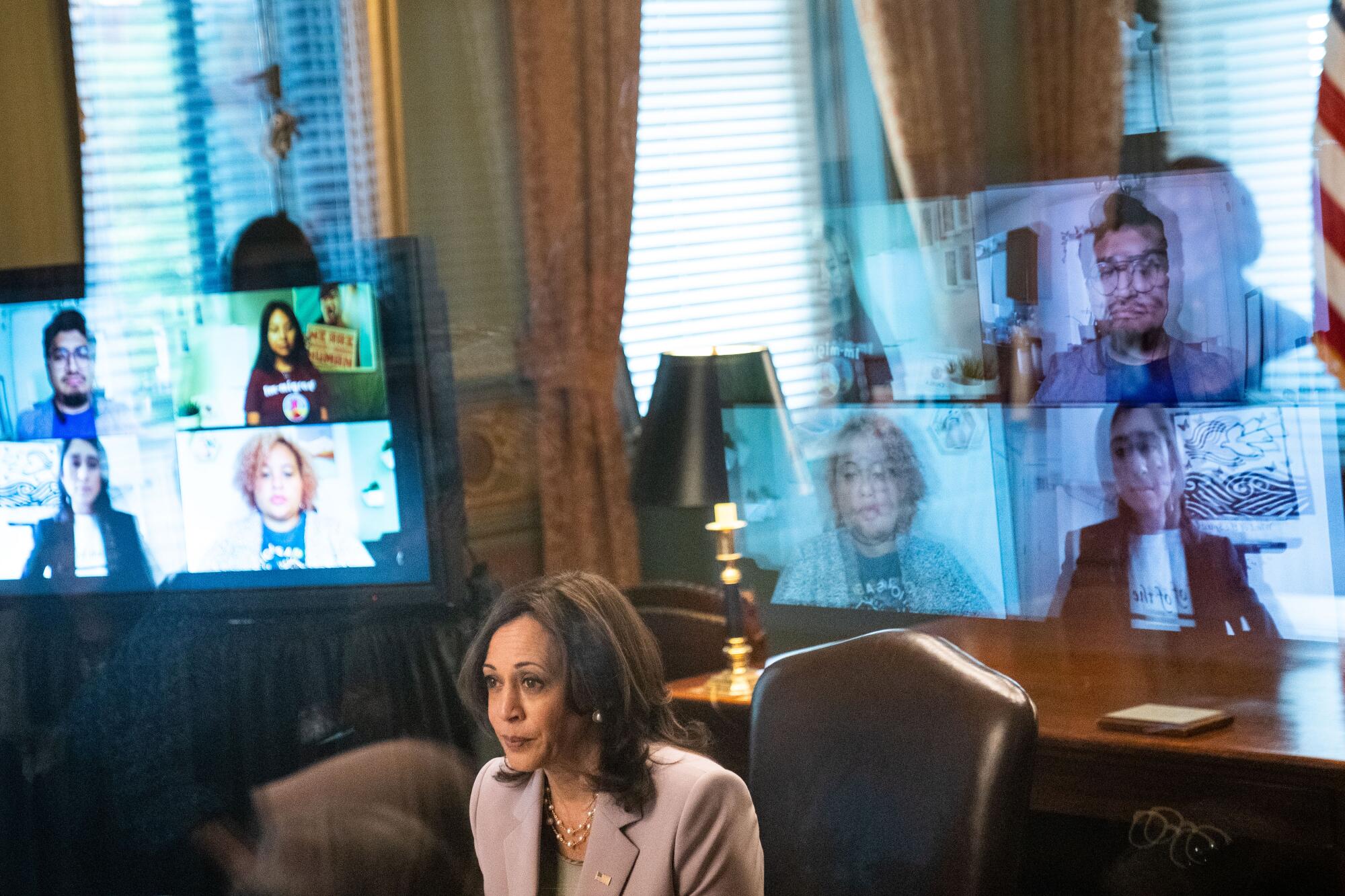
The White House has branded itself as the ‘Biden-Harris’ administration, but the two, once inseparable, are now spending more time apart.
Harris is hardly the first No. 2 to feel constrained by the job. But she came in with some of the highest expectations in memory, both because of her political stature and Biden’s age.
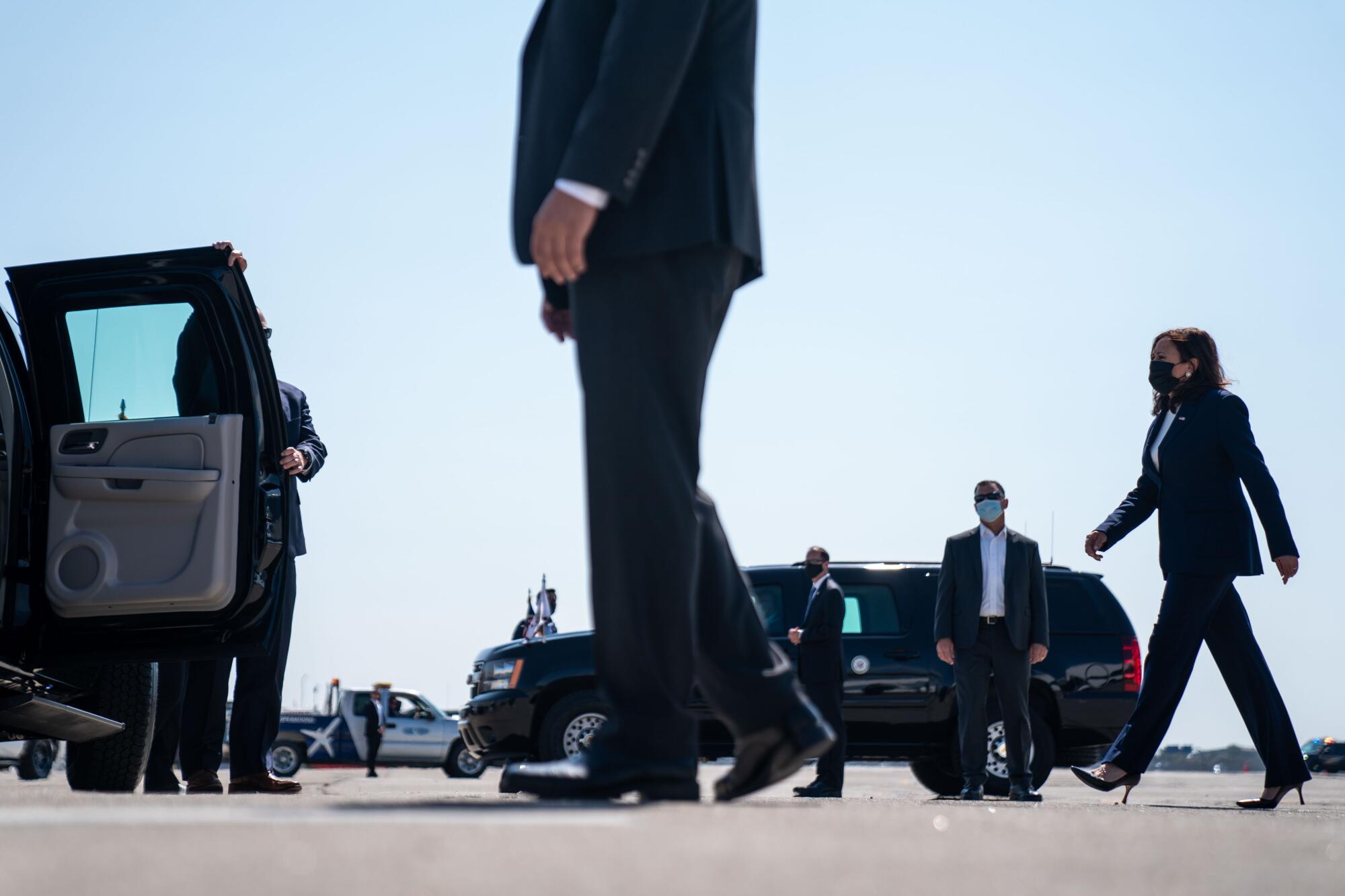
She is favored by about 40% of voters, compared with 53% who hold an unfavorable view. Her poor poll numbers and difficulty in defining herself have concerned some Democrats.
Harris’ allies say the polling should not matter at this stage. They point to history, which suggests sticking closely with the president and ensuring his success is her best path toward building her legacy and competing for the presidency.
More to Read
Get the L.A. Times Politics newsletter
Deeply reported insights into legislation, politics and policy from Sacramento, Washington and beyond. In your inbox three times per week.
You may occasionally receive promotional content from the Los Angeles Times.

